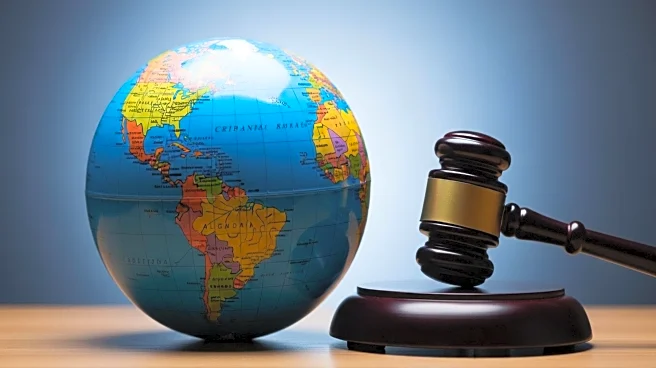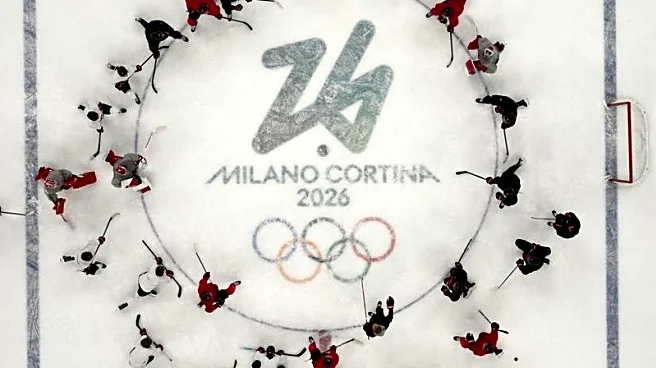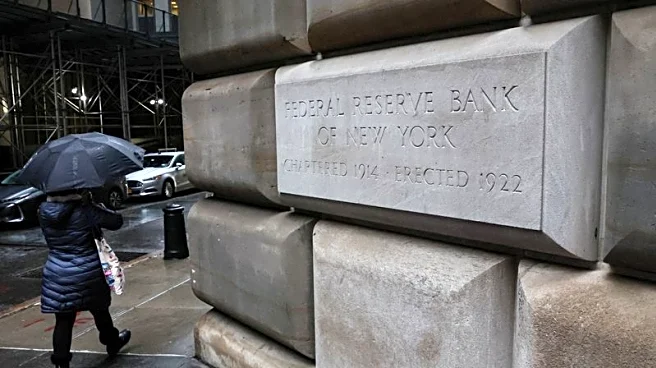What's Happening?
The United Nations is set to reimpose sanctions on Iran due to its non-compliance with the 2015 nuclear deal, as declared by France, Germany, and the United Kingdom. This decision follows a 30-day countdown initiated on August 28, 2025, after these countries reported Iran's violations to the UN Security Council. Despite diplomatic efforts by Iranian President Masoud Pezeshkian and Foreign Minister Abbas Araghchi at the UN General Assembly, Iran's Supreme Leader Ayatollah Ali Khamenei has dismissed diplomacy with the United States as futile. The sanctions, known as 'snapback' sanctions, will freeze Iranian assets abroad, halt arms deals, and penalize Iran's ballistic missile program. This move comes after the U.S. and Israel conducted airstrikes on key Iranian nuclear sites in June, further escalating tensions.
Why It's Important?
The reimposition of sanctions on Iran is significant as it underscores the ongoing international concern over Iran's nuclear ambitions. The sanctions are expected to exert additional pressure on Iran's already strained economy, potentially impacting its oil exports, particularly to major buyers like China. The move also highlights the geopolitical tensions in the Middle East, exacerbated by the recent Israel-Hamas conflict. The sanctions could further isolate Iran diplomatically and economically, affecting its ability to engage in international trade and finance. Additionally, the decision reflects the broader international community's stance on nuclear non-proliferation and the enforcement of compliance with international agreements.
What's Next?
With the 'snapback' sanctions set to take effect, Iran may face increased economic challenges, potentially leading to domestic unrest. The international community, particularly the European nations involved in the nuclear deal, will likely monitor Iran's response closely. The sanctions could also prompt Iran to reconsider its nuclear strategy, although its leadership has so far shown little willingness to alter its course. The situation may lead to further diplomatic efforts or negotiations, possibly involving other global powers like China and Russia, who have previously supported Iran. The outcome of these developments could significantly influence regional stability and international relations.
Beyond the Headlines
The reimposition of sanctions raises ethical and legal questions about the effectiveness and fairness of such measures, particularly given the humanitarian impact on the Iranian population. The sanctions could exacerbate existing economic hardships, affecting access to essential goods and services. Additionally, the situation highlights the complexities of international diplomacy, where geopolitical interests often clash with efforts to maintain global security and stability. The broader implications for nuclear non-proliferation efforts and the role of international institutions like the UN in enforcing compliance with global agreements are also significant considerations.











